2018’s Top 10 National News Stories
2018-01-15
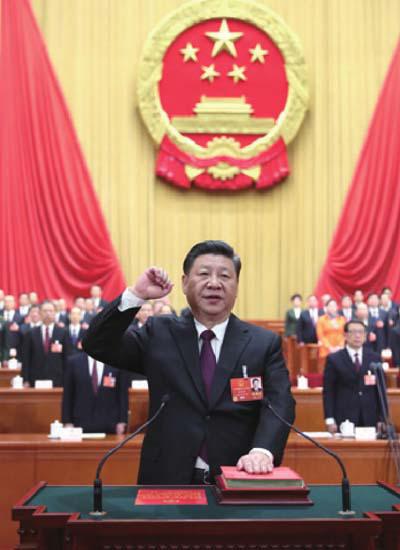
Xi Jinping Reelected President
Xi Jinping was reelected president and chairman of the Central Military Commission at the First Session of the 13th National Peoples Congress(NPC), Chinas top legislature, on March 17.
During his first five-year term, Xi led the country to historic achievements. Chinas GDP grew by 7.1 percent annually, while residentsincome rose by 7.4 percent. The country carried out targeted poverty alleviation, implemented supply-side structural reform and fought corruption. It also promoted mass entrepreneurship and innovation, strengthened ecological protection and downsized the army. Xis proposals of the Belt and Road Initiative and a community with a shared future for humanity have won widespread support in the international community.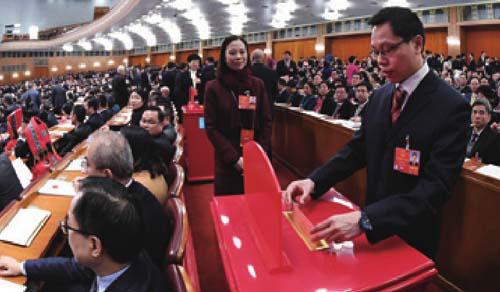
Constitution Amended
The Amendment to the Constitution was adopted by the First Session of the 13th NPC on March 11.
Xi Jinping Thought on Socialism with Chinese Characteristics for a New Era was codified into the Constitution to affirm its guiding role. The statement that “the leadership of the Communist Party of China is the most essential feature of socialism with Chinese characteristics” was also added to embody the Partys leadership over all work.
In addition, some other articles were amended to highlight the importance of adhering to socialist core values and promoting the rule of law.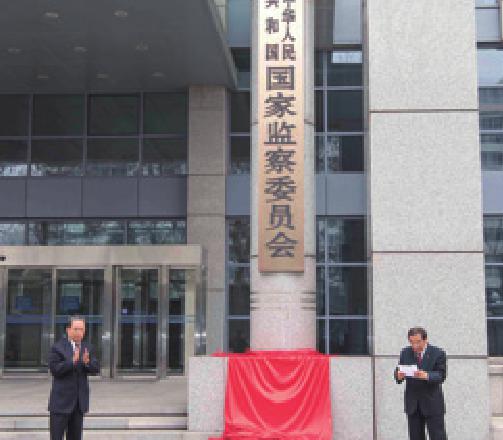
Reform of Party and State Institutions
A prominent feature of the reform is that some state institutions were integrated into Party organs with similar functions so that the overall leadership of the Party has been strengthened.
According to the State Councils reshuffl ing plan adopted on March 15 at the First Session of the 13th NPC, eight ministerial-level and seven deputy ministerial-level departments were slashed. Except for the General Offi ce, the State Council consists of 26 departments.
On March 23, the State Supervisory Commission was inaugurated. The amended Constitution stipulates that supervisory commissions should be established at various levels to handle illegal acts by public employees, mainly corruption, dereliction of duty and other duty-related crimes.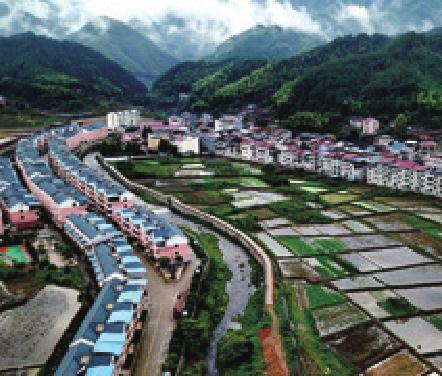
Rural Vitalization
The Rural Vitalization Strategic Plan (2018-22) was released on September 26, spelling out fi ve key vitalization tasks involving rural industries, talent, culture, ecosystem and organizations. It also set a three-step goal. By 2020, the institutional framework and policy systems of rural vitalization will have taken shape; by 2035, rural vitalization will have made decisive progress and the modernization of agriculture and rural areas will be basically realized; by 2050, rural areas will have been vitalized and beautified in an all-round way, agriculture will be strong and farmers affl uent.
The rural vitalization strategy was fi rst put forward at the 19th National Congress of the Communist Party of China (CPC) in October 2017. The CPC Central Committee and the State Council made comprehensive arrangements for implementing the strategy in a joint document in January.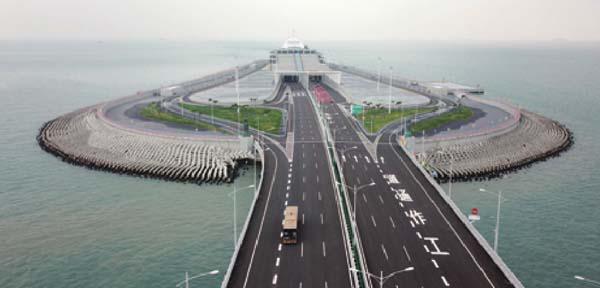
Guangdong-HK-Macao Integration
Transportation infrastructure construction has enhanced the connectivity between Guangdong Province and Hong Kong and Macao special administrative regions.
The Hong Kong section of the Guangzhou-Shenzhen-Hong Kong High Speed Railway was opened on September 23, marking Hong Kongs integration into the national high-speed rail network.
The Hong Kong-Zhuhai-Macao Bridge opened to traffi c on October 24. The 55-km bridge connects Zhuhai in Guangdong with Hong Kong and Macao. It is the worlds longest sea-crossing bridge.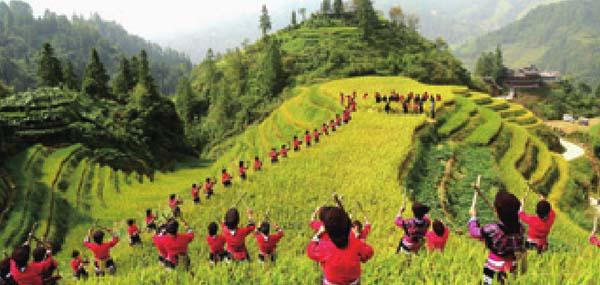
New Holidays
China created two new holidays in 2018, Medical Workers Day on August 19 and the Chinese Farmers Harvest Festival on the Autumnal Equinox (September 22 in 2018) each year.
Super Typhoon Mangkhut
On September 16, super typhoon Mangkhut landed in Taishan, south Chinas Guangdong Province. The maximum wind velocity near the epicenter of the storm was 14 on the Beaufort wind force scale. Nearly 3 million people in Guangdong and neighboring Guangxi Zhuang Autonomous Region and Hainan, Hunan and Guizhou provinces were affected, with five deaths. More than 1,200 houses collapsed and direct economic losses worth 5.2 billion yuan ($754 million) were incurred.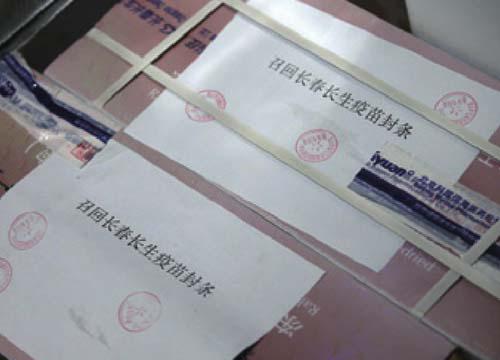
Vaccine Scandal
Changchun Changsheng Biotech Co. Ltd. in northeast Chinas Jilin Province was found to have falsified production records in making rabies vaccines for human use, according to an announcement by the State Drug Administration on July 15.
In October, the Jilin Food and Drug Administration revoked the companys pharmaceutical production license and confiscated illegally produced vaccines and 1.89 billion yuan ($274 million) made from defective vaccine sales. It also imposed a fi ne of 7.21 billion yuan ($1.05 billion). On November 16, Shenzhen Stock Exchange started compulsory delisting procedures for Changsheng.
First Cloned Macaques
On January 25, Cell, the leading international academic journal in biology, featured the birth of the worlds fi rst two cloned macaques.
Zhong Zhong and Hua Hua were created by scientists at the Center for Excellence in Brain Science and Intelligence Technology of the Institute of Neuroscience at the Chinese Academy of Sciences.
The success will accelerate the research and development of new drugs for brain diseases such as Alzheimers and autism, as well as for immune deficiencies, tumors and metabolic diseases. It also indicates that China is leading the research in non-human primate diseases in the world.
New Heritage Honors
Mount Fanjing in Tongren, southwest Chinas Guizhou Province, was inscribed into the World Natural Heritage List at the 42nd Session of the World Heritage Committee on July 2, becoming Chinas 53rd world heritage site and 13th world natural heritage site.
The mountain, with its highest peak at 2,570 meters above sea level, is mainly composed of metamorphic rocks surrounded by vast karst landforms, showing unique geological, ecological and biological characteristics.
On November 28, Tibetan medicine bath was included in the Representative List of UNESCOs Intangible Cultural Heritage.
An important part of Tibetan medicine, it is the traditional practice of disease prevention by bathing in natural hot springs or in water with medicinal steam.
